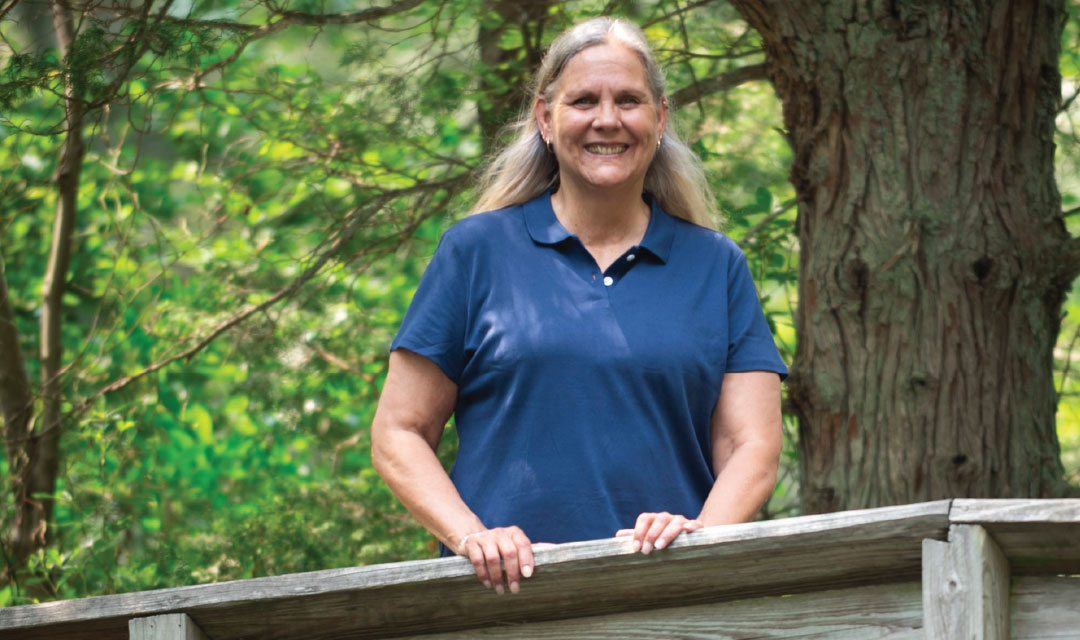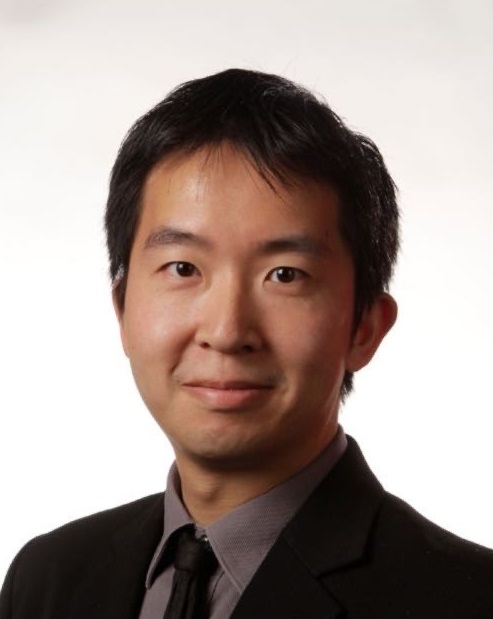"I can’t stress enough how important it is to catch breast cancer early. If I didn’t go for the screenings, they would not have found mine when they did."

Lynne Kennedy, 60, of Beachwood, was three weeks past the one-year mark of her last annual mammogram when she got a new test at the Community Medical Center (CMC) Women’s Imaging Center in March 2021. But there was never any question that she would get the screening. “I’ve been going for a yearly mammogram forever,” she says.
When the center called to say she needed additional imaging tests, Lynne wasn’t too concerned. She’d had other callbacks over the years. But this time after the extra tests, Lynne was asked to come in for a biopsy. “That set off anxiety in me because I had never gone that far,” she says. “I’d never been called back for a biopsy.”
Lynne returned to the Women’s Imaging Center for the procedure. Unfortunately, the biopsy showed that she had breast cancer. “It came pretty much as a complete shock,” Lynne says. “Breast cancer doesn’t run in the family.”
Still, Lynne had ample reason for hope. “My doctor explained that if there can be a ‘good’ cancer, this was it,” she says. She, her husband and their two adult daughters were able to face the diagnosis head-on and stay positive throughout the ordeal.
A Silver Lining
Lynne’s experience attests to the power of regular mammograms and early detection. Her diagnosis was stage 1 invasive ductal carcinoma—a cancer that was small and unlikely to have spread to the rest of her body. Lynne learned her cancer was also one of the easiest to treat. It was estrogen receptor (ER) positive, meaning that its growth was fueled by estrogen. There are a number of effective treatment options for this type of cancer.

As a result of the early diagnosis, Sumy Chang, MD, a fellowship-trained breast cancer surgeon at CMC and a member of the RWJBarnabas Health Medical Group, was able to perform a less invasive surgery. “When a cancer is small and we can find it on imaging, we are able to save the breast,” Dr. Chang says. Losing a breast through a mastectomy—even when women facing breast cancer surgery choose to have their breast removed—can have profound consequences. “It has a big emotional impact,” Dr. Chang says. “Sometimes it’s less about the loss of breast tissue than the loss of sensation.” Sparing the breast also translates into a faster and less painful recovery.
Dr. Chang removed one suspicious-looking lymph node, but it was cancer-free. This indicated that cancer cells were unlikely to have migrated to other parts of Lynne’s body. Lynne was also a candidate for less aggressive post-surgery treatment. After the tumor was removed, she received radiation therapy for 21 days to kill any remaining cancer cells. Despite some fatigue, she fared well during this period.

Lynne did not need chemotherapy and was able to avoid its side effects because the cancer was caught early, says Horace Tang, MD, a hematologist/oncologist at CMC and a member of the RWJBarnabas Health Medical Group. Since her cancer was ER positive, she started taking an aromatase inhibitor, which stops production of estrogen in postmenopausal women. She will take the medication every day for five years to prevent other cancers from developing.
Mammograms Matter
If Lynne had skipped her mammogram, she might be telling a different story. “Mammograms have their biggest impact when cancer is caught from one year to the next,” says Dr. Chang. That’s why you need them every year, she says.
“It was very good that my cancer was caught early,” Lynne says. “When I met with Dr. Chang and we were looking back at the films from last year, it was not there. I probably would never have felt it.”
“A lot of people think if they have cancer, it’s a death sentence,” says Dr. Tang. “But when cancer is stage 1, you have a very good prognosis. With the appropriate treatment, I expect Lynne to have a life expectancy comparable to women who don’t have breast cancer.”
Lynne may experience menopausal symptoms on the aromatase inhibitor, including mood changes, Dr. Tang says. She may also develop joint pain or bone-thinning osteoporosis. But most patients have no side effects, and Dr. Tang will monitor her to address any serious health issues that crop up.
But Lynne knows she could have been looking at a far less certain future. And she’s worried that many women don’t take mammograms seriously. “Some of my friends don’t go for screenings,” she says. “I hear women say, ‘I hate mammograms because they are so uncomfortable.’ But I can’t stress enough how important it is to catch breast cancer early. If I didn’t go for the screenings, they would not have found mine when they did and I wouldn’t be in the position that I’m in now.”
To make an appointment, visit Request an Appointment for a Screening Mammogram or call 732-557-3363.